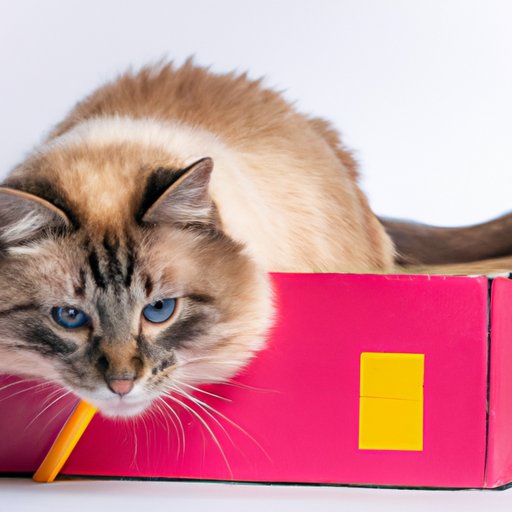Cats Love Boxes: Understanding Feline Behavior
If you have a cat, you may have noticed that they seem to have an unexplainable obsession with boxes. Whether it’s a cardboard box or a plastic container, your feline friend is likely to find a way to squeeze themselves into it. But why do cats love boxes? In this article, we’ll explore the reasons behind this behavior and delve into the science behind our feline friends’ box obsession.
The Instinctual Nature of Cats: Exploring Why Felines are Obsessed with Boxes
Cats are natural predators that have evolved over thousands of years. They possess an instinctual drive to hunt and capture prey. As a result, their brains are wired to be extremely observant of their environment. When it comes to boxes, they serve as an opportunity for cats to engage in their natural hunting behaviors.
In the wild, cats use hiding spots to keep a watchful eye over their prey. In domestic settings, boxes provide a cozy, confined space, which helps cats feel secure while they observe their surroundings. This explains why cats have a natural attraction to hiding in boxes.
Breaking Down the Science: Deciphering the Reasons Cats Love Hiding in Boxes
The reasons behind a cat’s love for boxes are multi-faceted. They go beyond just the instinctual drive to hunt. The science behind this behavior is rooted in the concept of affordances. Affordances are the actions or opportunities that objects provide to the user. For cats, boxes provide a variety of affordances that are both mentally and physically stimulating.
Additionally, cats have a different way of perceiving their environment compared to humans. While humans focus on visual stimuli and color, cats rely on their other senses, such as scent and hearing. Boxes provide a sensory experience for cats, allowing them to explore intriguing odors and sounds in a safe and comfortable environment.
The Joy of Hiding: An Investigation into Why Cats Find Solace in Confined Spaces
Cats are known for being independent animals, but they still require a sense of security and comfort. Hiding in boxes provides a perfect space for them to unwind and destress. Hiding in boxes reduces a cat’s response to threats, so finding an enclosed area to relax helps alleviate their overall stress level.
Stress-relief behaviors, such as hiding in boxes, have been observed in cats of all breeds and ages. This behavior is especially common in cats that live in multi-cat households or in crowded, high-stress environments.
The Art of Catting: How Boxes Stimulate a Cat’s Mind and Promote Playfulness
Cats often become easily bored, and boxes offer an opportunity for them to engage in play and exploration. The confined space of a box presents a challenge for their natural problem-solving skills, which can be mentally stimulating.
Not only do boxes appeal to a cat’s curiosity, but they also present an opportunity for playtime. Boxes can serve as an obstacle course or an impromptu hiding spot when playing with their favorite toys. In addition, playing within boxes is a form of cognitive enrichment that can help prevent behavioral problems like chewing, scratching, or aggression.
Discovering the Inner Workings of a Cat’s Mind: Unpacking the Reasons Behind their Box Obsession
From a neurological standpoint, the appeal of boxes is due in part to the release of dopamine in a cat’s brain, a chemical that is associated with pleasure and happiness. The discovery of dopamine release in cats allows us to better understand why cats love boxes and stimulates the brain in ways that can put them in a better mood.
Loving boxes can be an indicator of a cat’s overall well-being, so observing this behavior can be an excellent indication that your cat is leading a happy and healthy life.
The Perfect Fit: How Boxes Serve as a Safe and Comfortable Space for Cats
Comfort is a key factor in a cat’s attraction to boxes. Apart from being a secure and safe space, boxes provide a cozy, warm environment that reminds cats of their mother’s womb. However, it’s essential to choose the right box for your cat. If the box is too small, they may feel uncomfortable or cramped. A good rule of thumb is to pick a box that’s about one and a half times the size of your cat for the best fit.
Conclusion
Box-love in cats is more than just a quirky behavior. It is ingrained in their instinctual nature and provides a sense of comfort and security. Hiding in boxes is also a mental and physical stimulus that can boost their mood, promote playfulness, and reduce stress levels. By understanding why cats love boxes, you can provide more opportunities for your cat to explore and play. So, go ahead and let your cat indulge in their box obsession, and watch them thrive in their cozy, sheltered world.
